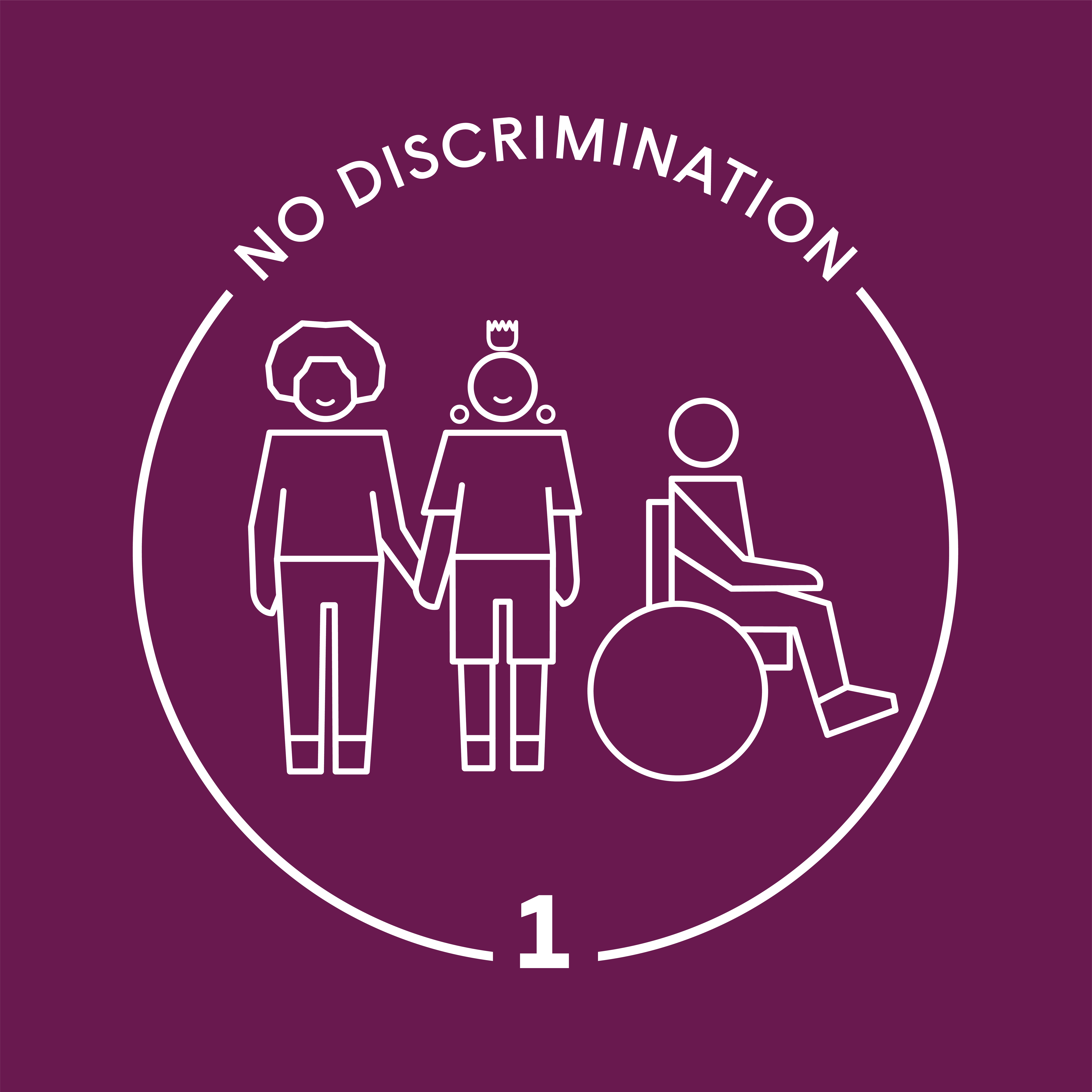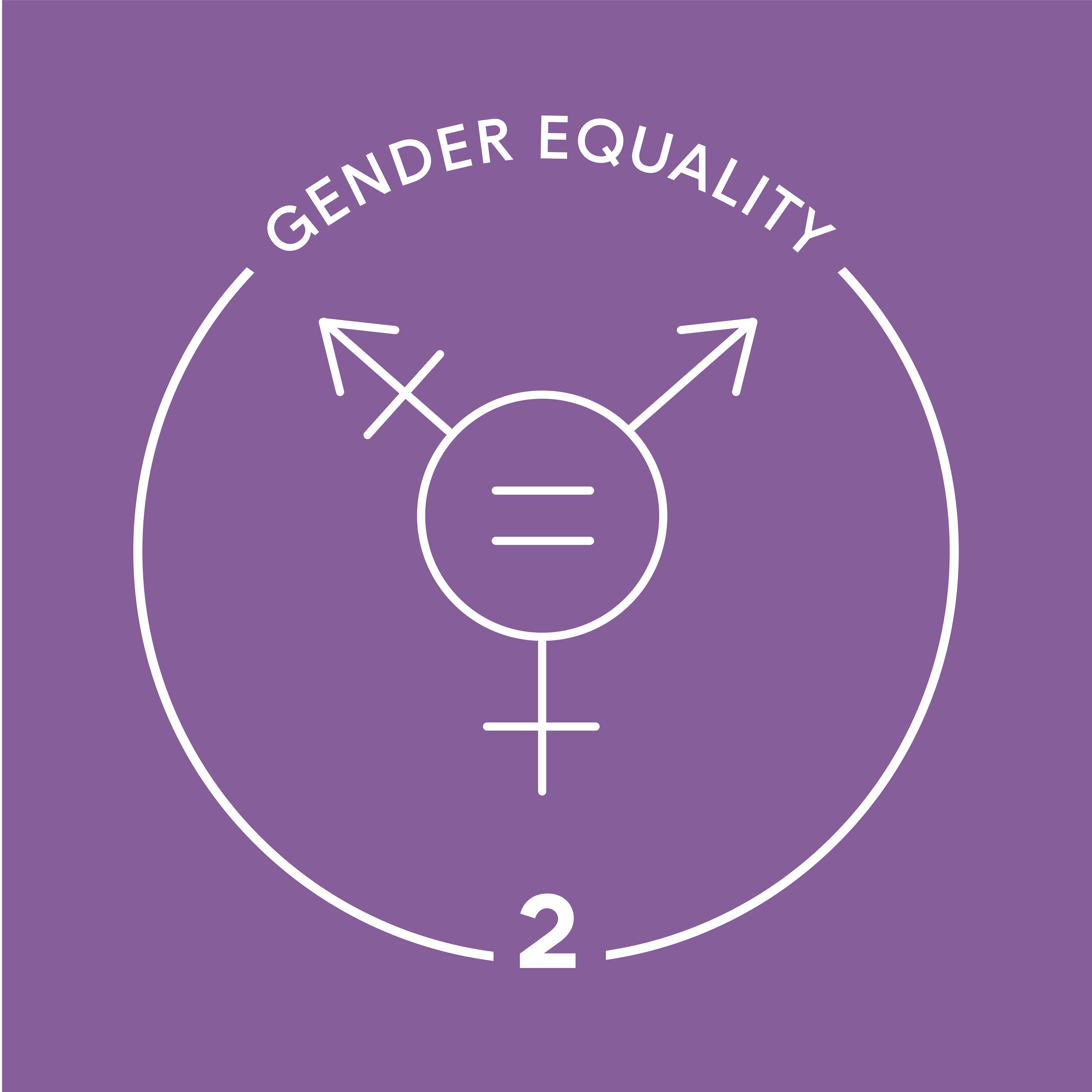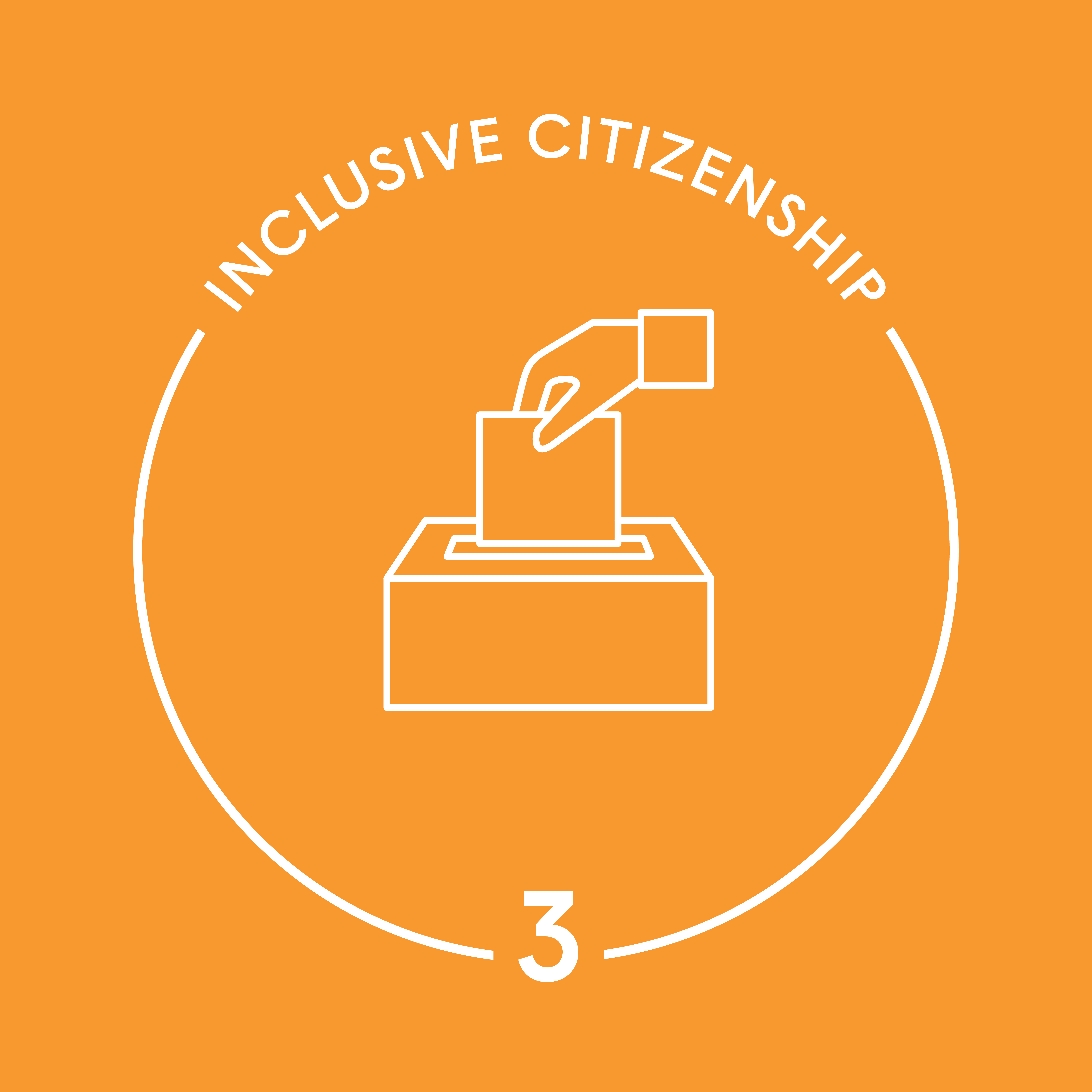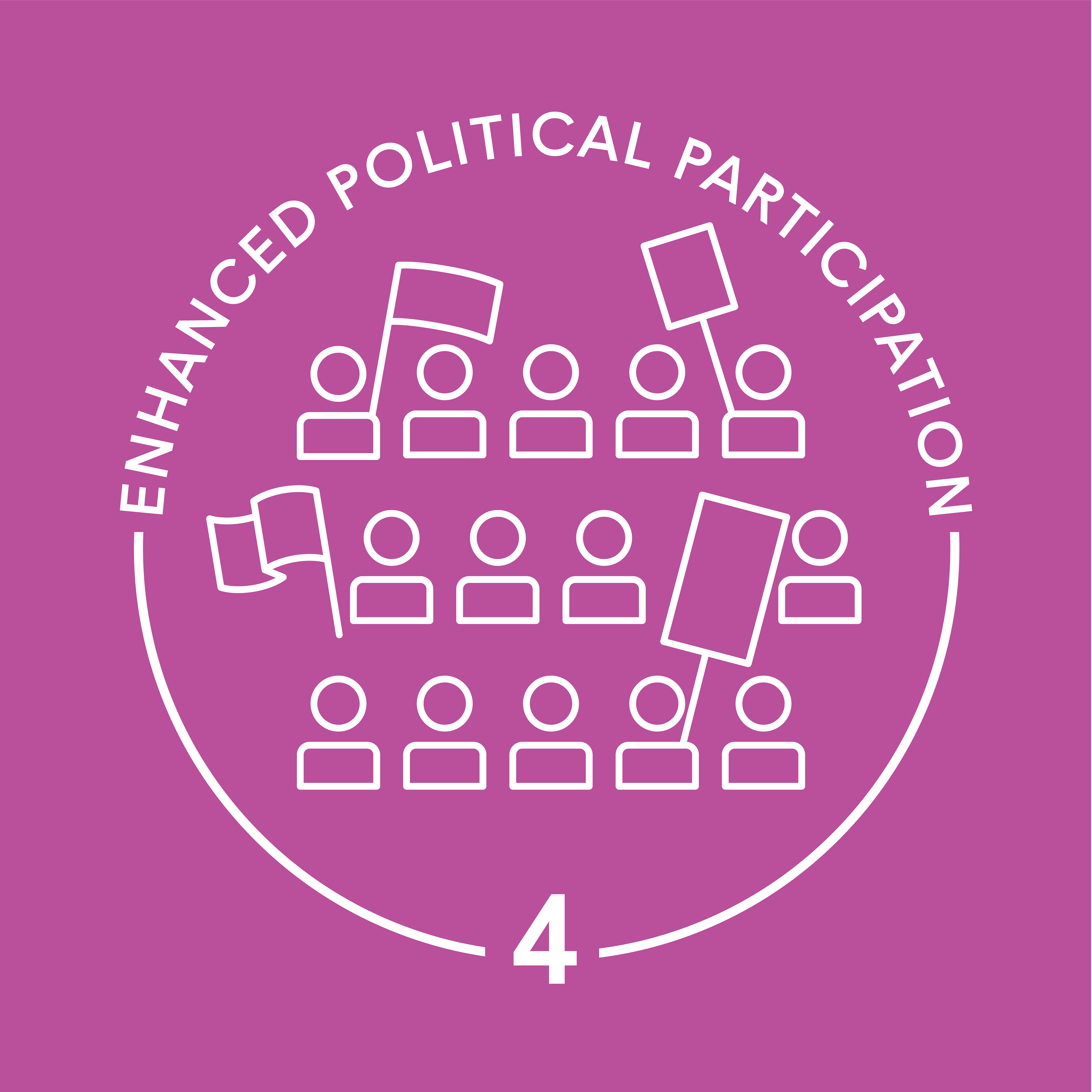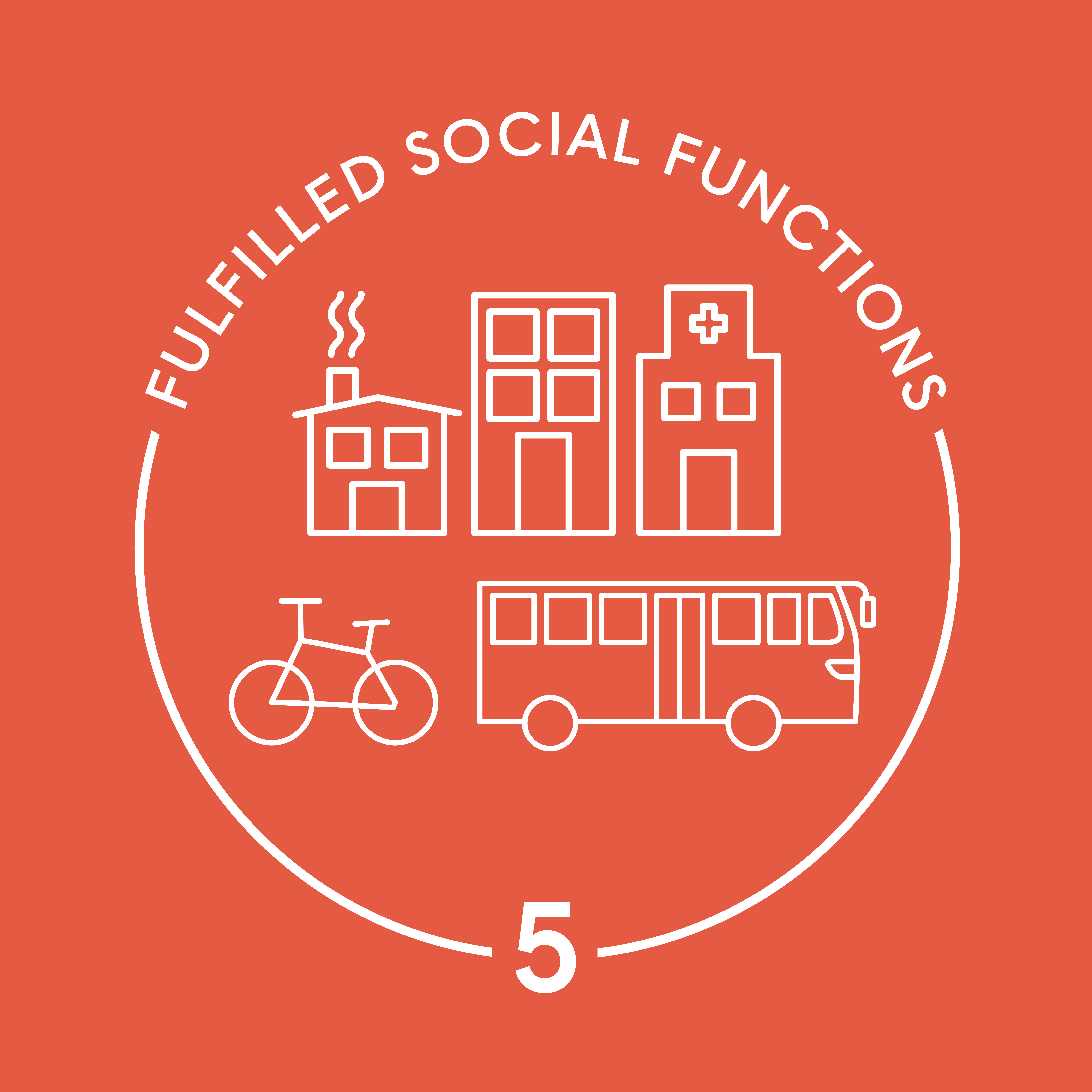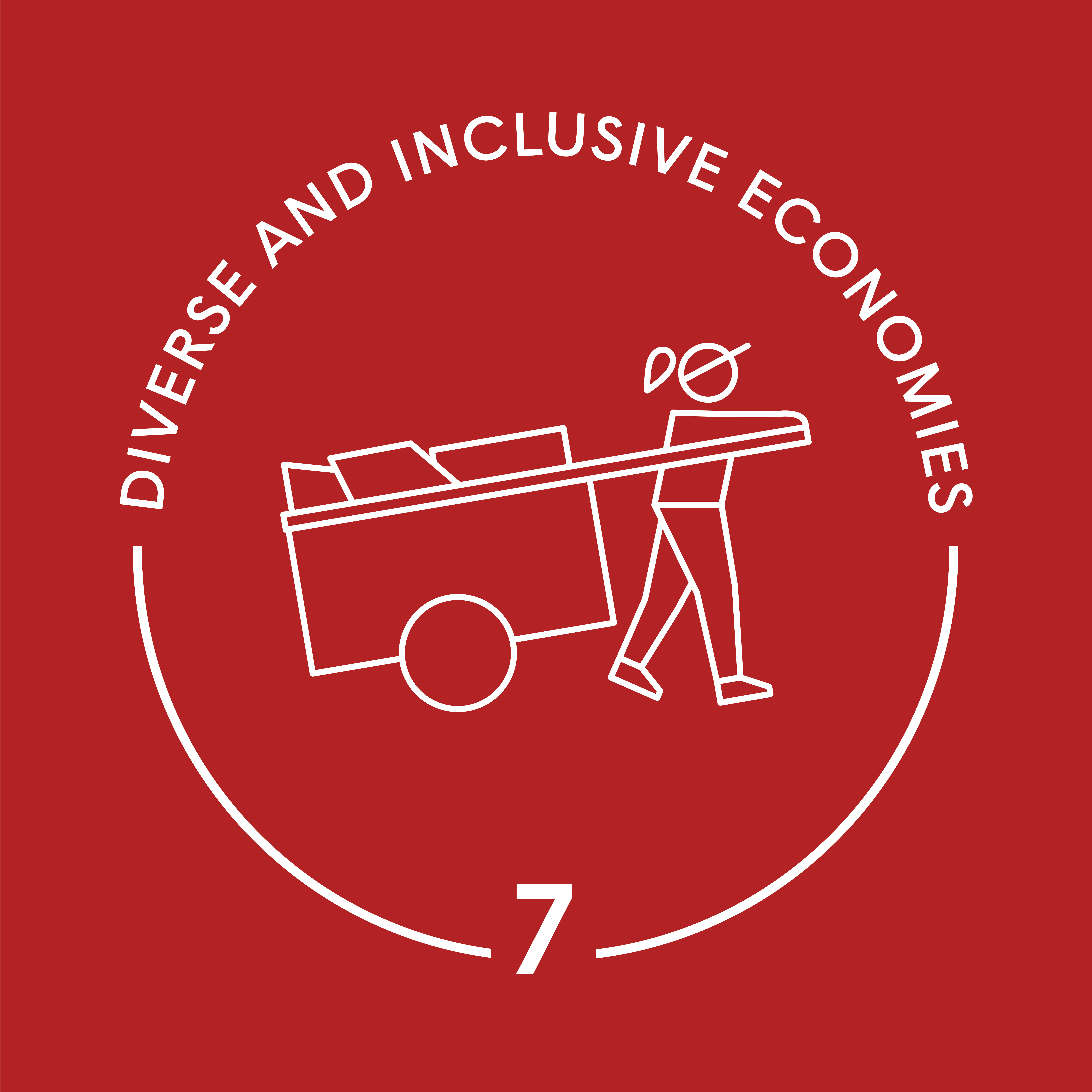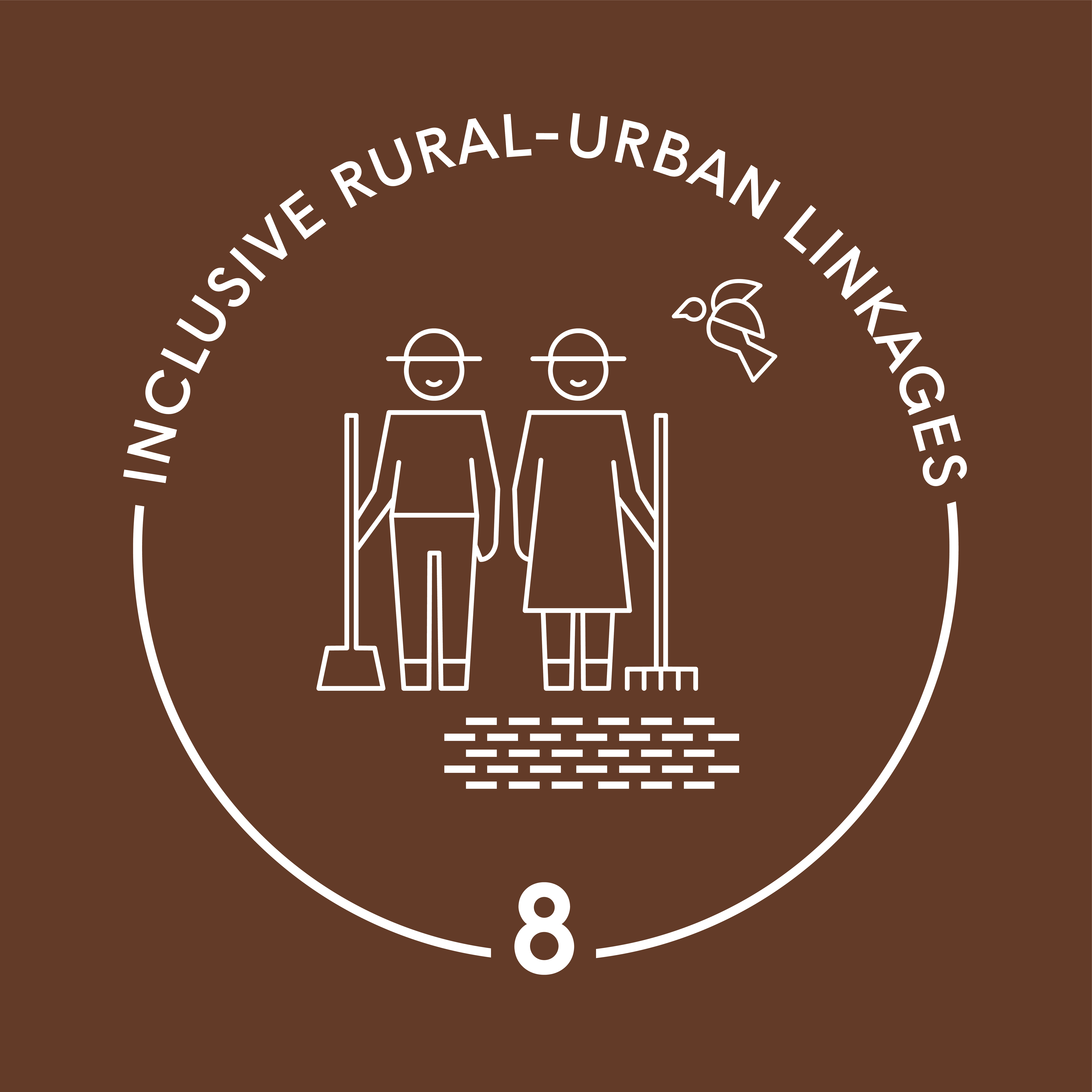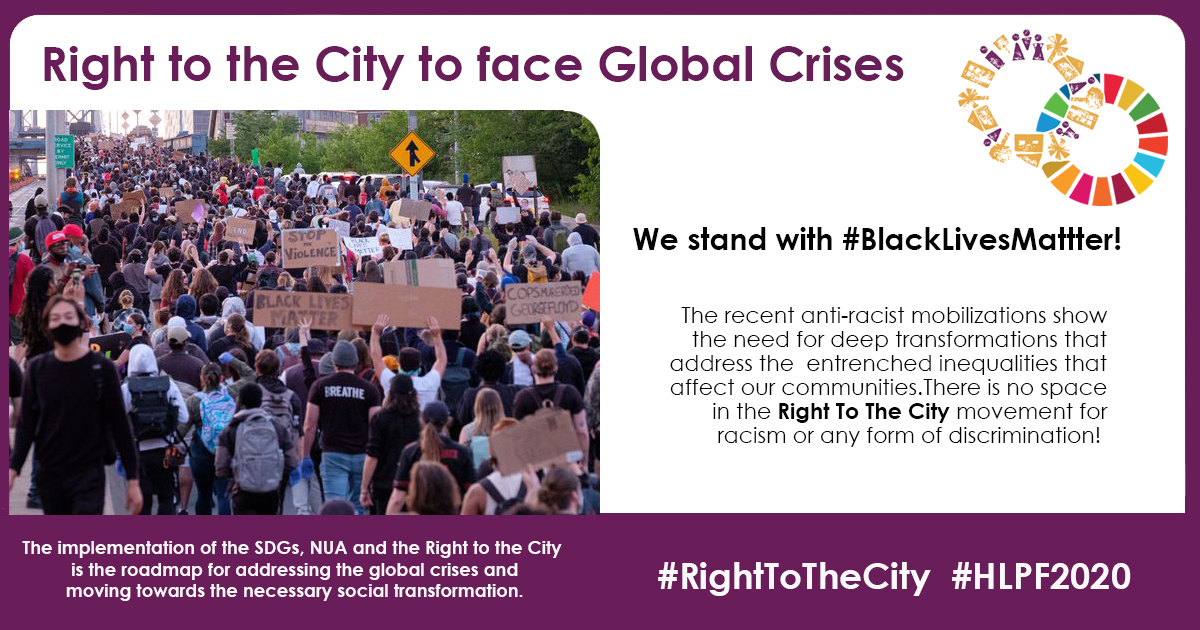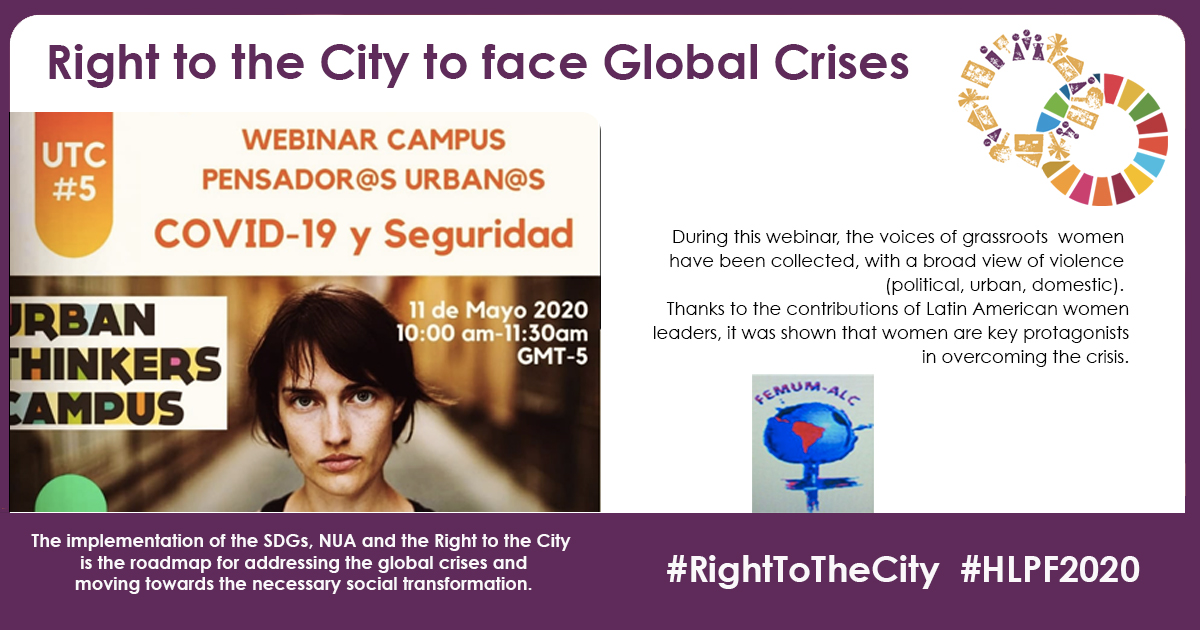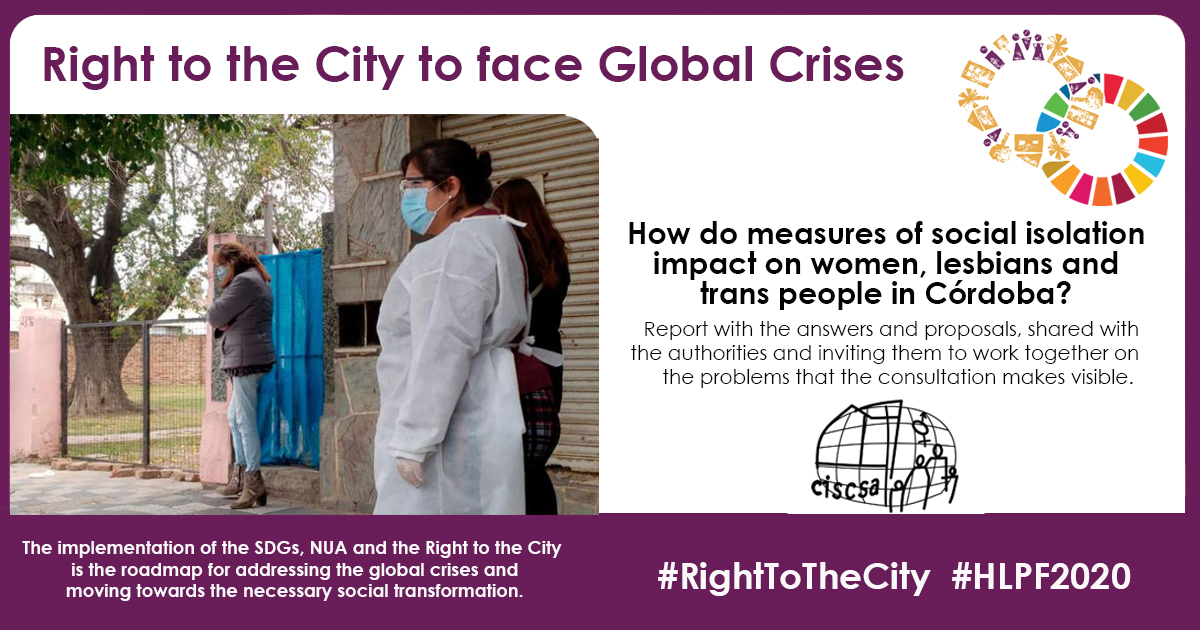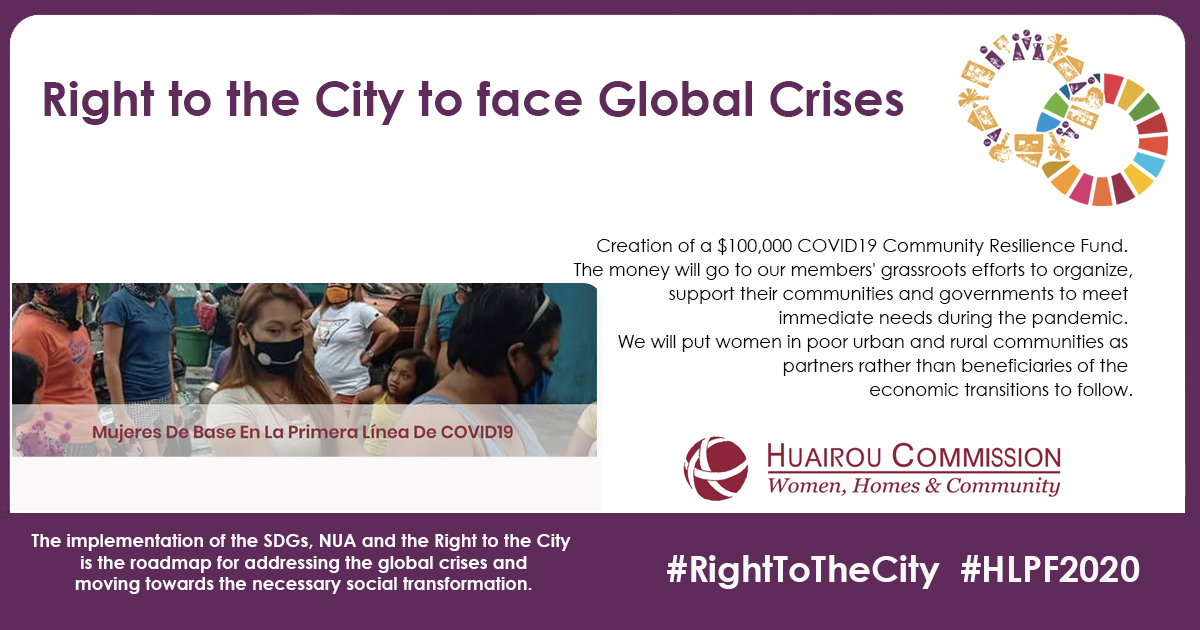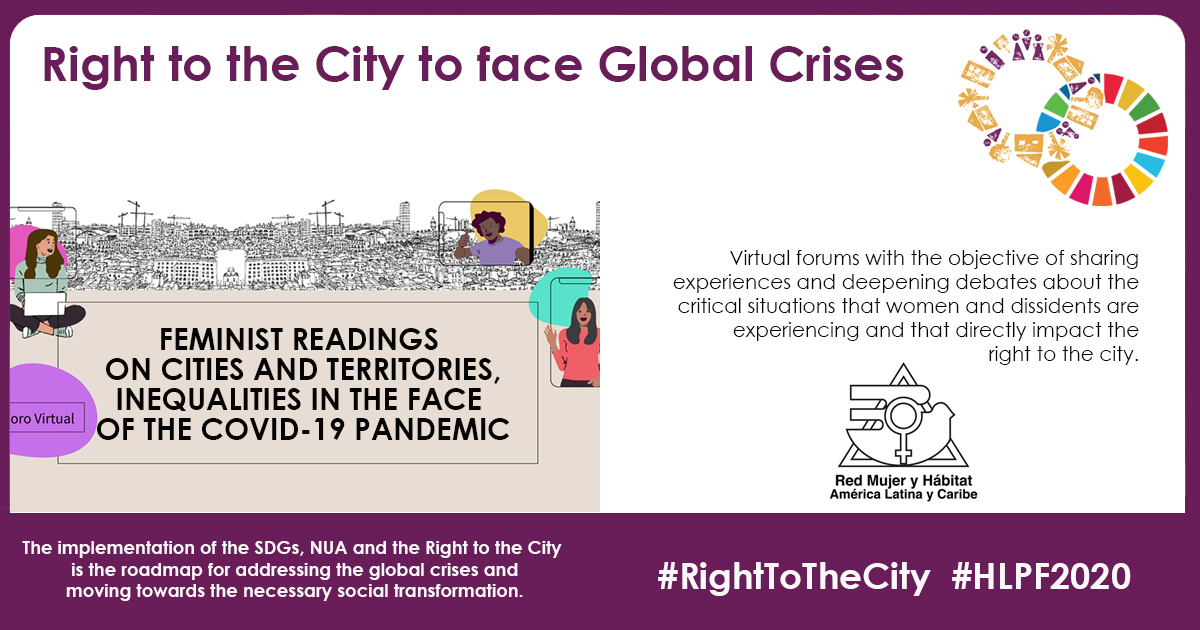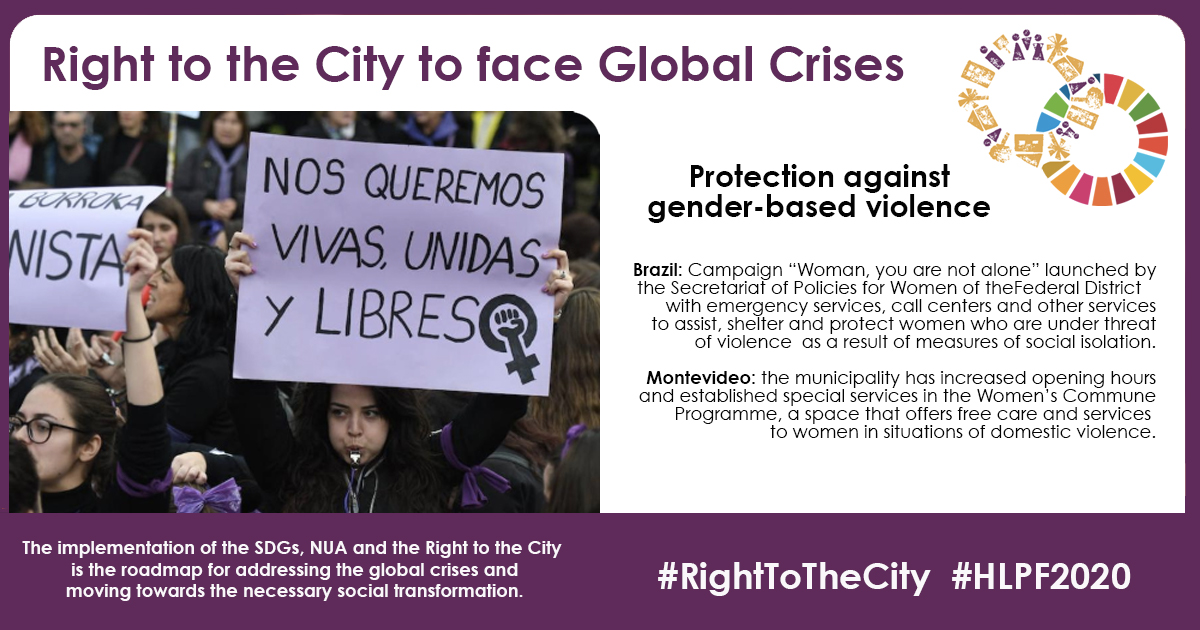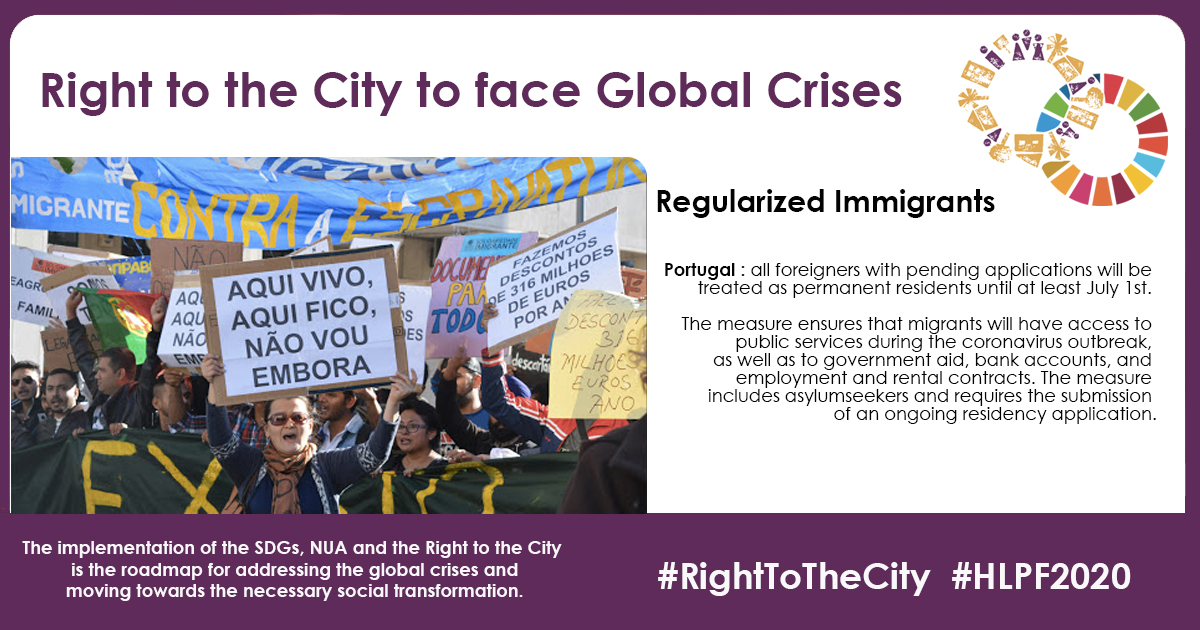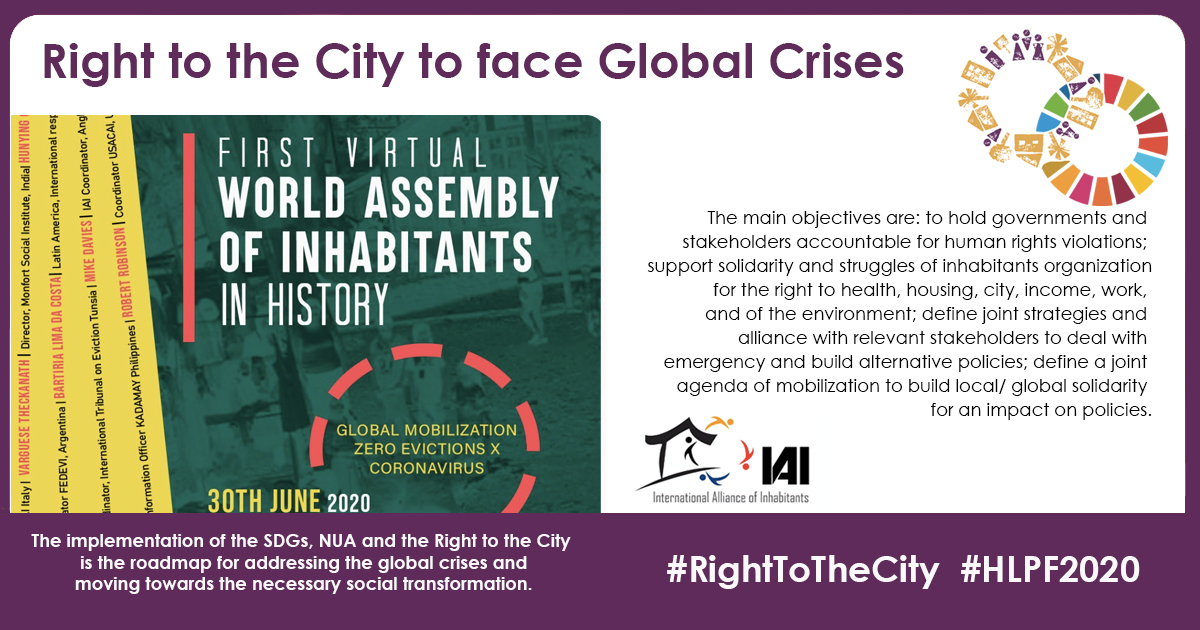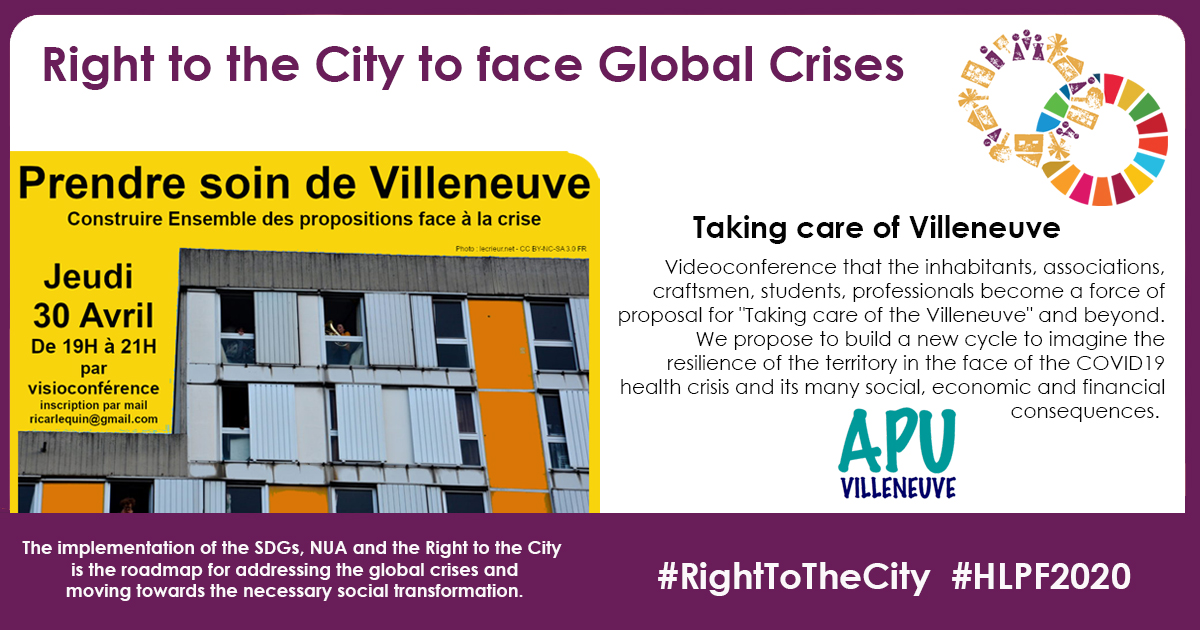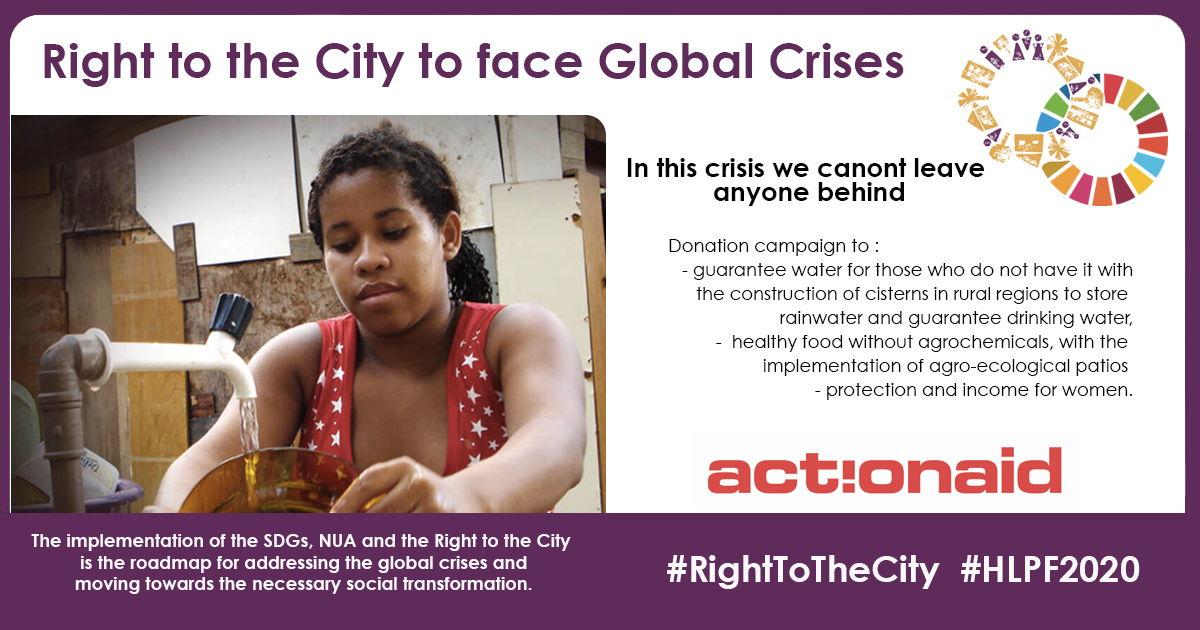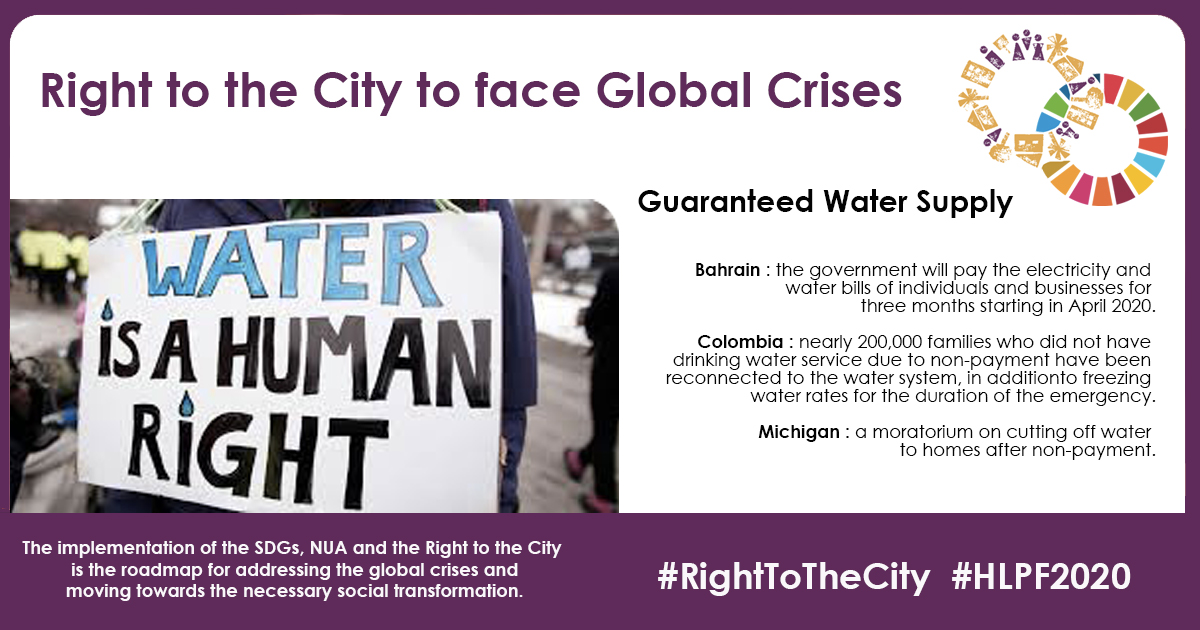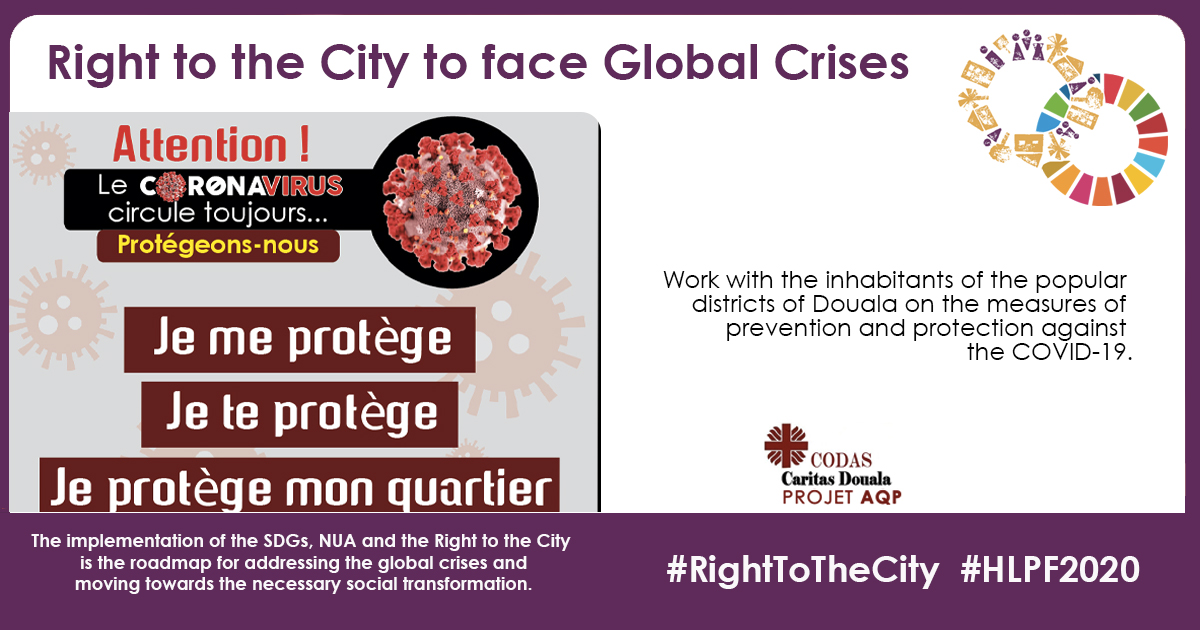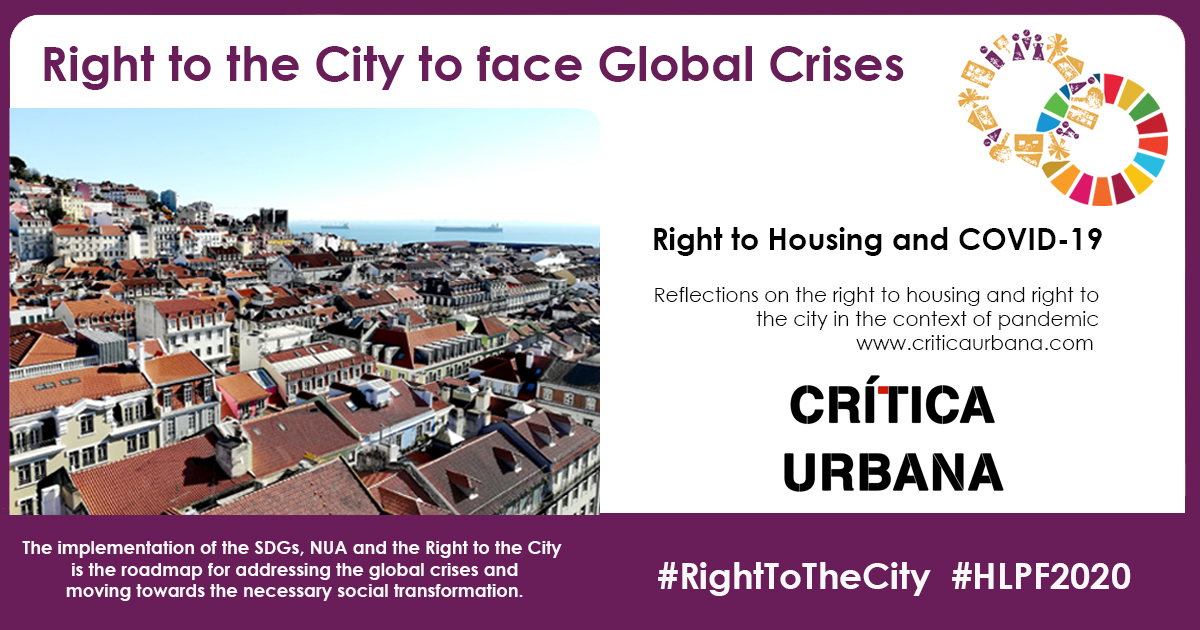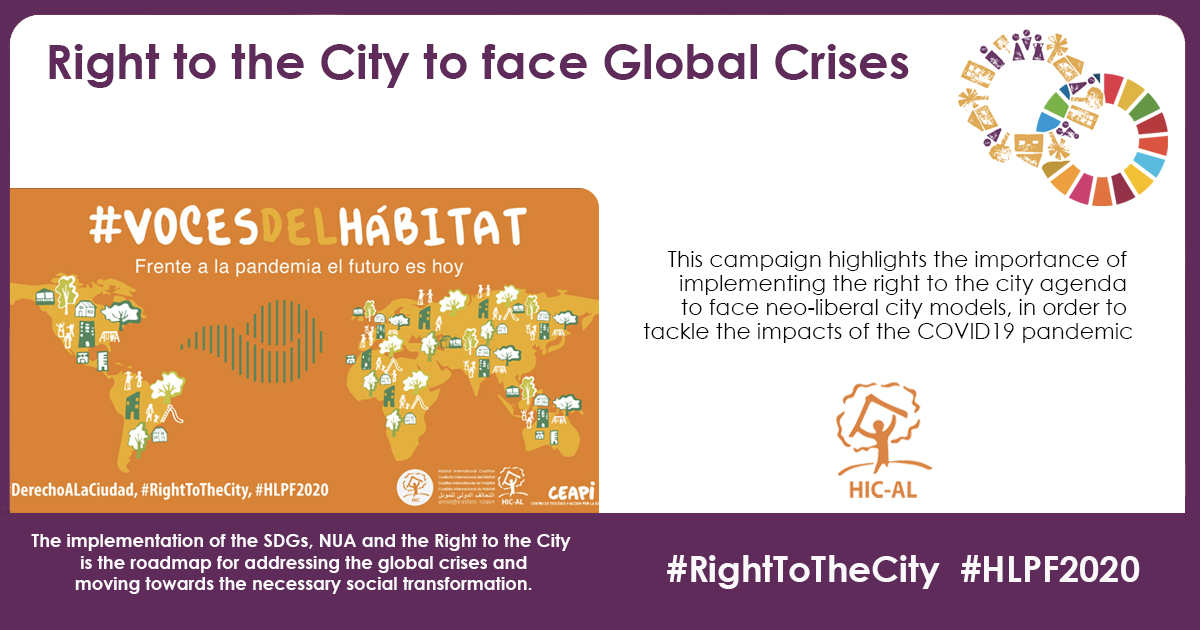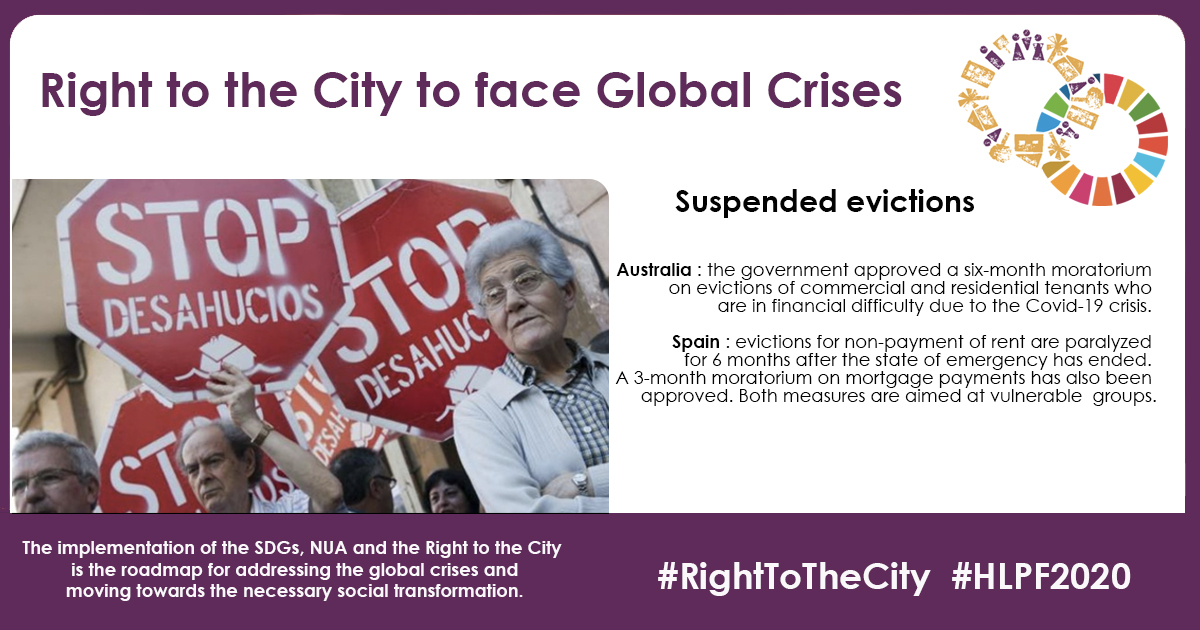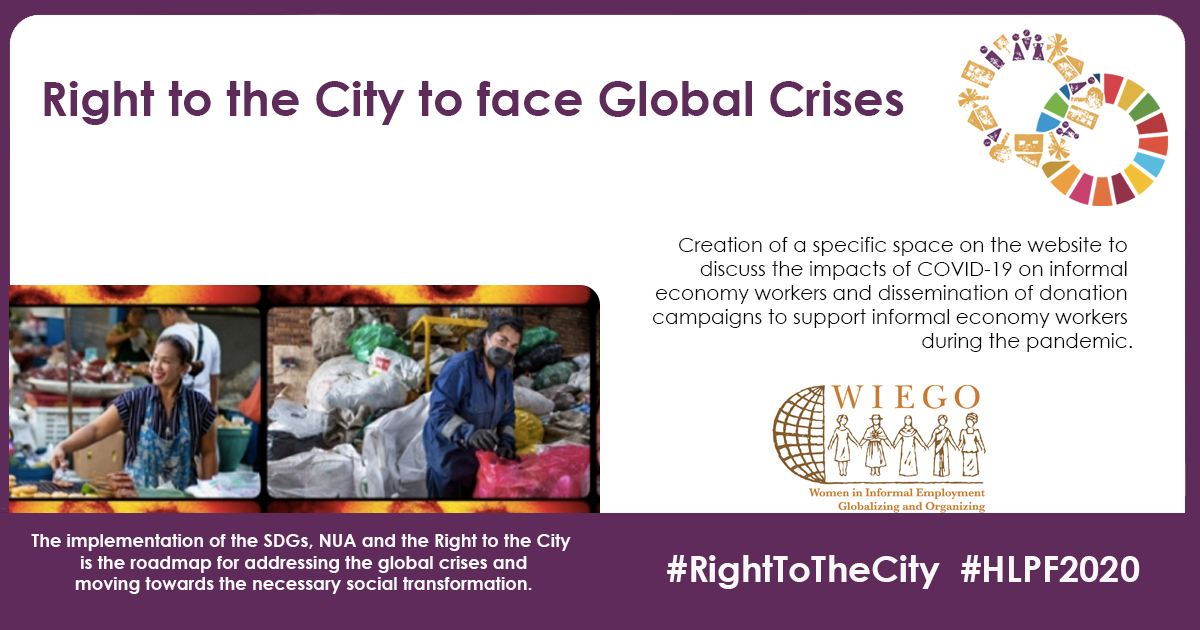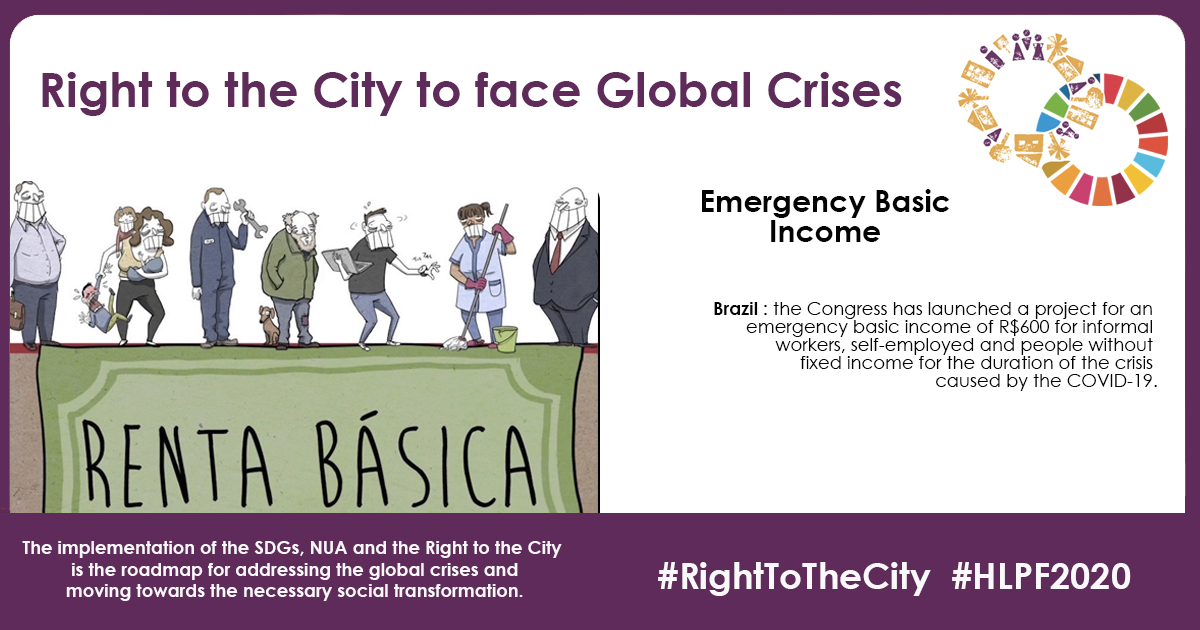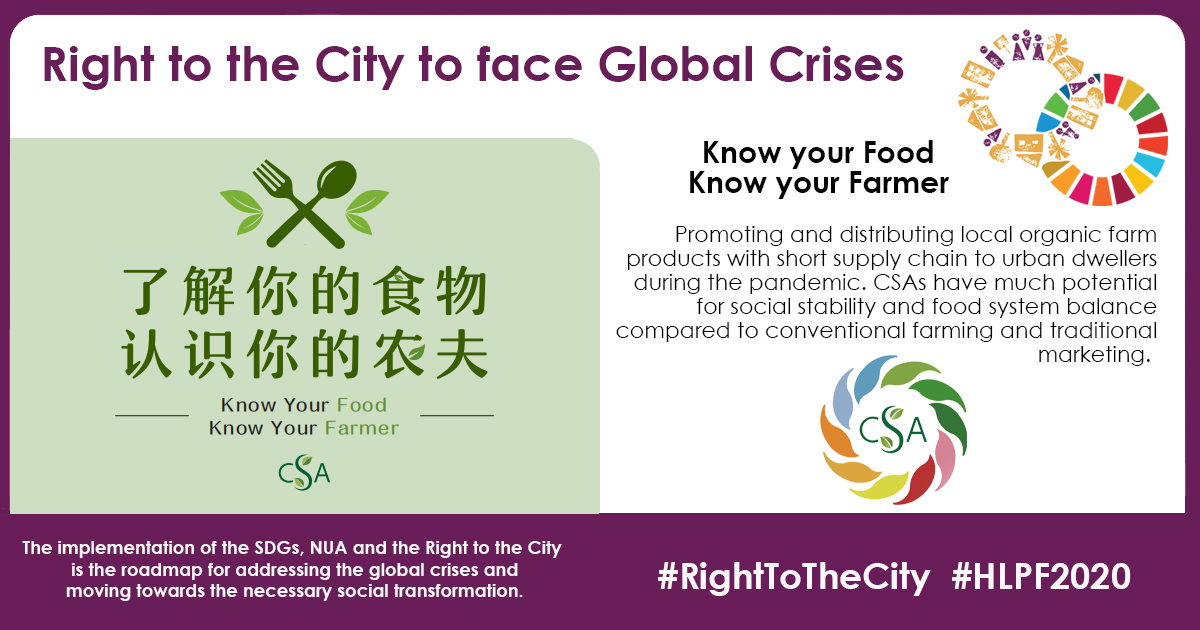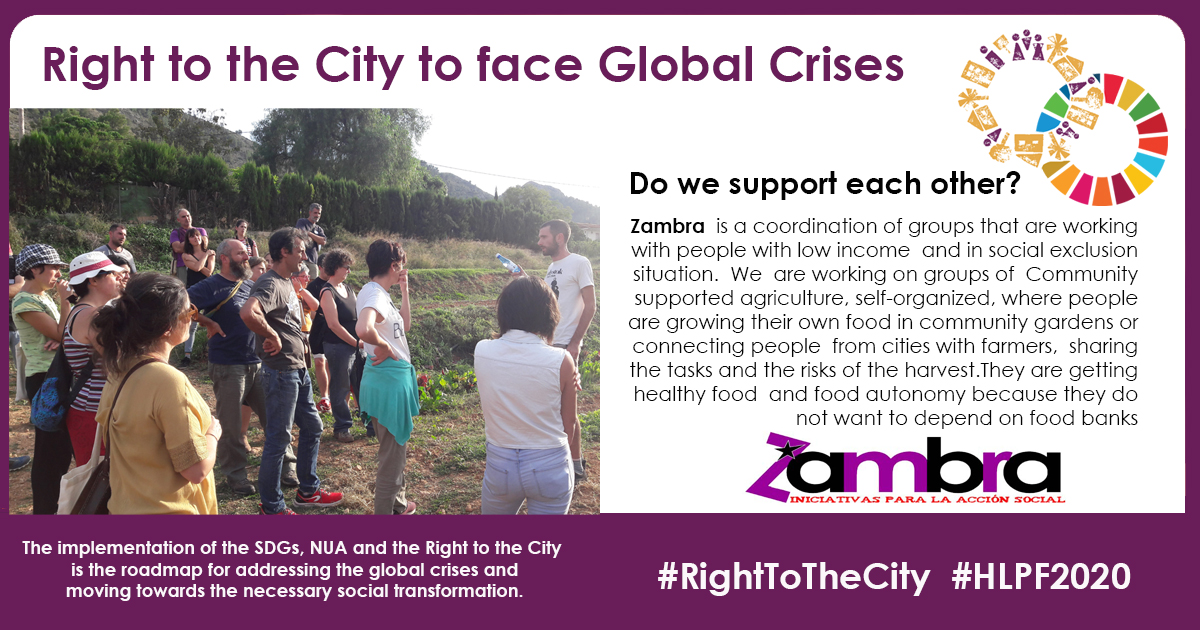The pandemic finds us at a time of crisis of the neoliberal system and climate emergency, further aggravating the health, social and economic situation worldwide. All over the world, civil society and local governments are demonstrating leadership in the response of the crises, developing both emergency responses to the most urgent needs and initiatives that move towards the needed structural transformation. Strengthening horizontal and democratic collaboration between actors and institutions (government, communities, civil society) and at different scales (neighbourhood, city, national, international) must be at the core of the response to these global challenges.
For this year’s High-Level Political Forum we launched an urgent appeal to the United Nations and all international, regional, national and local institutions and civil society organizations to work together in the implementation of the SDGs and NUA through the Right to the City to respond to these global crises with a human rights approach and moving to a long-term structural transformation of our cities and communities.
It is more urgent than ever to ensure the implementation of the 2030 Agenda and the New Urban Agenda, with the Right to City as the cornerstone. The Right to the City is key to achieve cities and human settlements that are just, inclusive, safe, sustainable and democratic, defined as common goods for enjoying life with dignity and peace.
The following map shows initiatives from all over the world that are moving in the direction of global transformations to address global crises.
Here we highlight some of our member and allies initiatives, as well as progressive policies initiatives, which address key points in the fight against COVID-19 and for the Right to the City.
